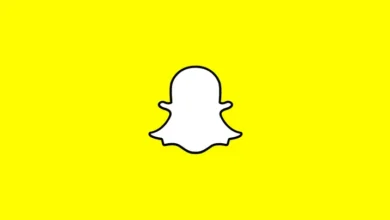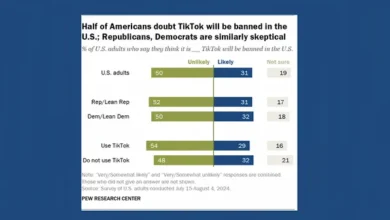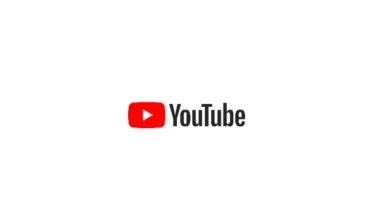
With TikTok’s U.S. sell-off bill looming, many questions remain as to what exactly the case is against the app, and what swayed U.S. Senators to vote overwhelmingly in favor of forcing the app to be sold into American ownership, or be banned entirely from the region.
Because while there’s been much speculation about TikTok sharing U.S. user data with its Chinese parent company, and potentially seeding pro-China stories (and censoring anti-China narratives), TikTok itself has denied all claims, and there’s seemingly no evidence to prove that any such misuse has occurred.
Or is there?
Late last week, in public court filings related to the TikTok sell-off bill, the U.S. Justice Department claimed that TikTok has tracked U.S. users’ views on sensitive issues, and shared that information with its Chinese parent company ByteDance, which is required to also pass on such info with the Chinese Government on request.
As reported by The Wall Street Journal:
“The Justice Department said it based its conclusions about TikTok tracking sensitive views on the discovery of a software tool that lets U.S. employees of TikTok and ByteDance collect user information based on a user’s content, including their views on subjects such as gun control, abortion and religion.”
That program, called “Lark”, enables ByteDance employees to monitor user responses to different subjects, and potentially flag accounts based on their views and behaviors.
Various former TikTok and ByteDance employees have acknowledged the existence of the Lark system within both companies, which requires user data to be sent to China to be processed. Among other topics, TikTok employees could also track users who watched gay content.
The Justice Department claims that it has evidence to show that TikTok has used these insights to target users with propaganda in the app, at the direction of the Chinese Government, while also censoring certain content as demanded by the CCP.
Which, as noted, has also long been speculated. Back in 2019, The Guardian reported on TikTok’s internal moderation guidelines which showed that TikTok staff had been ordered to censor videos that mentioned Tiananmen Square, Tibetan independence, or the Falun Gong. TikTok denied these claims, while also noting that some of these guidelines were only ever applied within China, and had not been transferred to TikTok itself (which is only available outside of China).
But clearly, the concern remains, and TikTok does seemingly have the means and motivation to use these insights to influence user opinion, if it so chooses.
And when you also consider the influence that the Chinese Government has over the local version of the app, called “Douyin”, along with the ongoing efforts that Chinese state-funded groups are undertaking to sway Western user opinions in virtually every other social app, it seems logical to assume that TikTok would present a perfect vector for the same.
So, based on these findings, the threat that TikTok poses is less about tracking general user data in the app, and learning what you, individually, are interested in, and more about understanding the political sensitivities of certain user groups, in order to seed potential narratives that would favor the CCP.
So while many TikTok supporters have criticized the U.S. Government’s move to force the app into a sell-off, there is clear logic, based on internal insights, to support the Justice Department’s case.
Is TikTok being used to influence people’s opinions, in alignment with the CCP’s direction? It’s almost impossible to know, because the personalization of TikTok’s algorithm means that each users’ experience is different. So you might not feel as though you’re being swayed, and that you couldn’t possibly be swayed by such. But it’s likely not as overt as you think, and it may well be that you’re also not a target for such.
Or, it could be nothing, as TikTok says.
This is what the court will now have to decide, as TikTok challenges the ruling, in the hopes of remaining active in the U.S.
Source link




